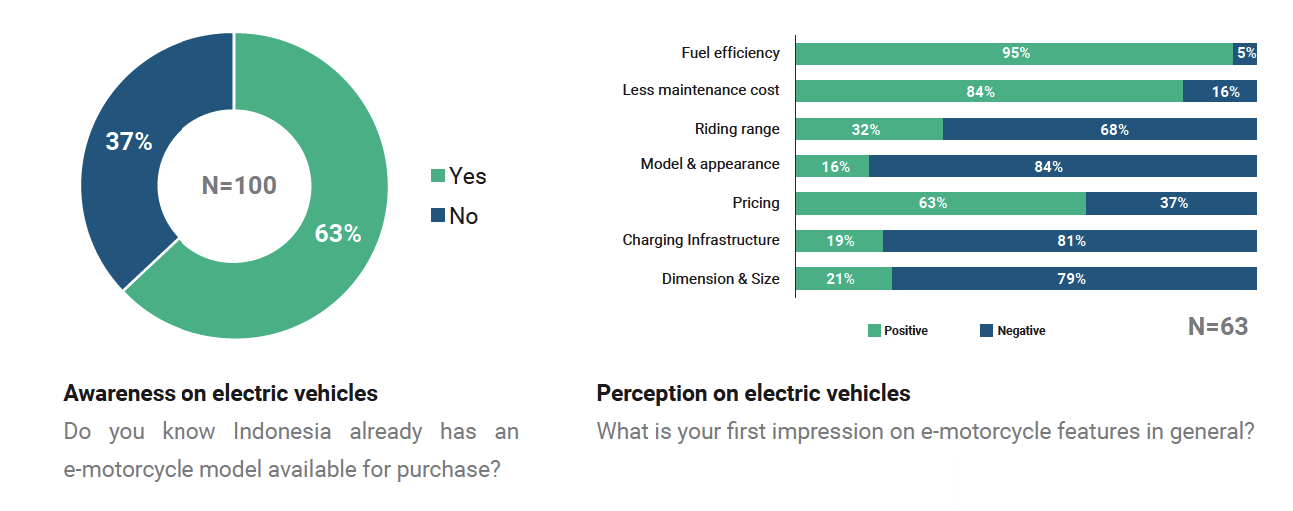Indonesia's growth in all economic sectors for the past few years is parallel to the growth of the national usage of fossil fuels, which are still perceived as the main source of energy in all economic sectors in Indonesia, such as household to transportation sectors. This dependency resulted in an increase of state budget allocation towards subsidy, energy sustainability issues, and CO2 emission rate.
In order to tackle all the negative impacts, the adoption of renewable energy sources must be implemented in the near future. One of the initiatives being the adoption of electric vehicle (EV) in Indonesia. This is seen as a grand opportunity for EV industry to enter the large market of Indonesia, the fourth most populated country in the world with an emerging affluent middle-class consumers and a high demand for cheap and energy-efficient personal vehicle.
According to our survey mentioned in the report, Electric Vehicle in Indonesia: The Road Towards Sustainable Transportation, 63% of Indonesians are well aware about the availability of electric motorcycle, and they have positive perception regarding electric motorcycle especially in its fuel efficiency, pricing, and less maintenance cost. On the contrary, a lower number of 46% of Indonesian are aware about the availability of electric car with the positive perception around model and size. However, this awareness around EV are not yet followed by the willingness to buy EVs, as its adoption is not yet supported with the implementation of incentives or adequate infrastructure.

Minister of Industry, Airlangga Hartanto, expects that by the year 2025, the total sales of EV accounts for at least 20 percent of total domestic vehicle sales. This figure roughly translates to two million electric motorcycles, 2,000 electric cars, and 711,000 hybrid cars. Without the cooperation between all stakeholders these numbers are considered to be very optimistic given that today's penetration of EV in Indonesia is still at an infant stage of development.
By utilizing this momentum of government commitment to implement EV in Indonesia, future EV players can adopt the recommended framework in the report to decide which transportation sector to enter and what are the key points that can be utilized to gain the market of EV.
Indonesia serves as the next uprising EV powerhouse in the global level. Indonesia's potential market and the government regulations that are ready to be applied in the near future will surely open doors towards the EV boom. This opportunity should not be left unnoticed by EV players around the globe.
Download White Paper